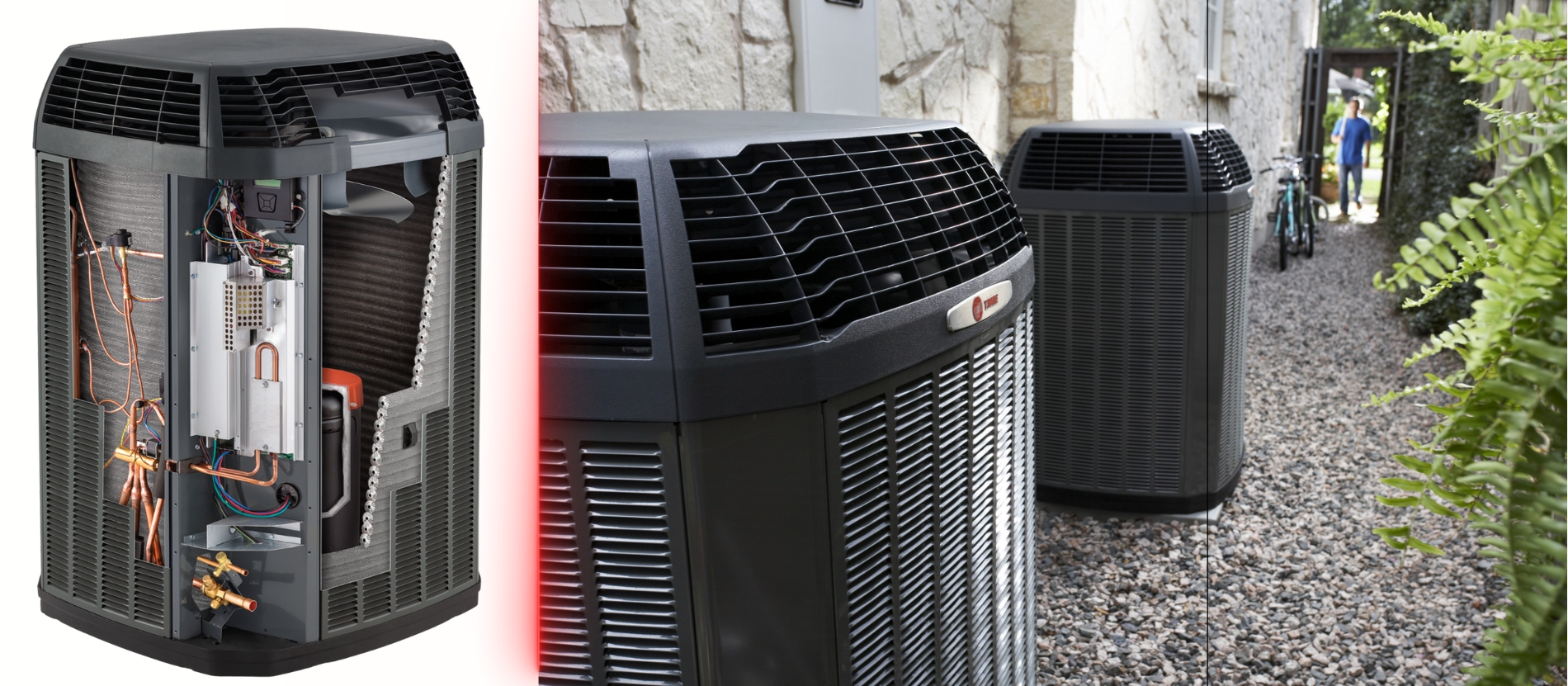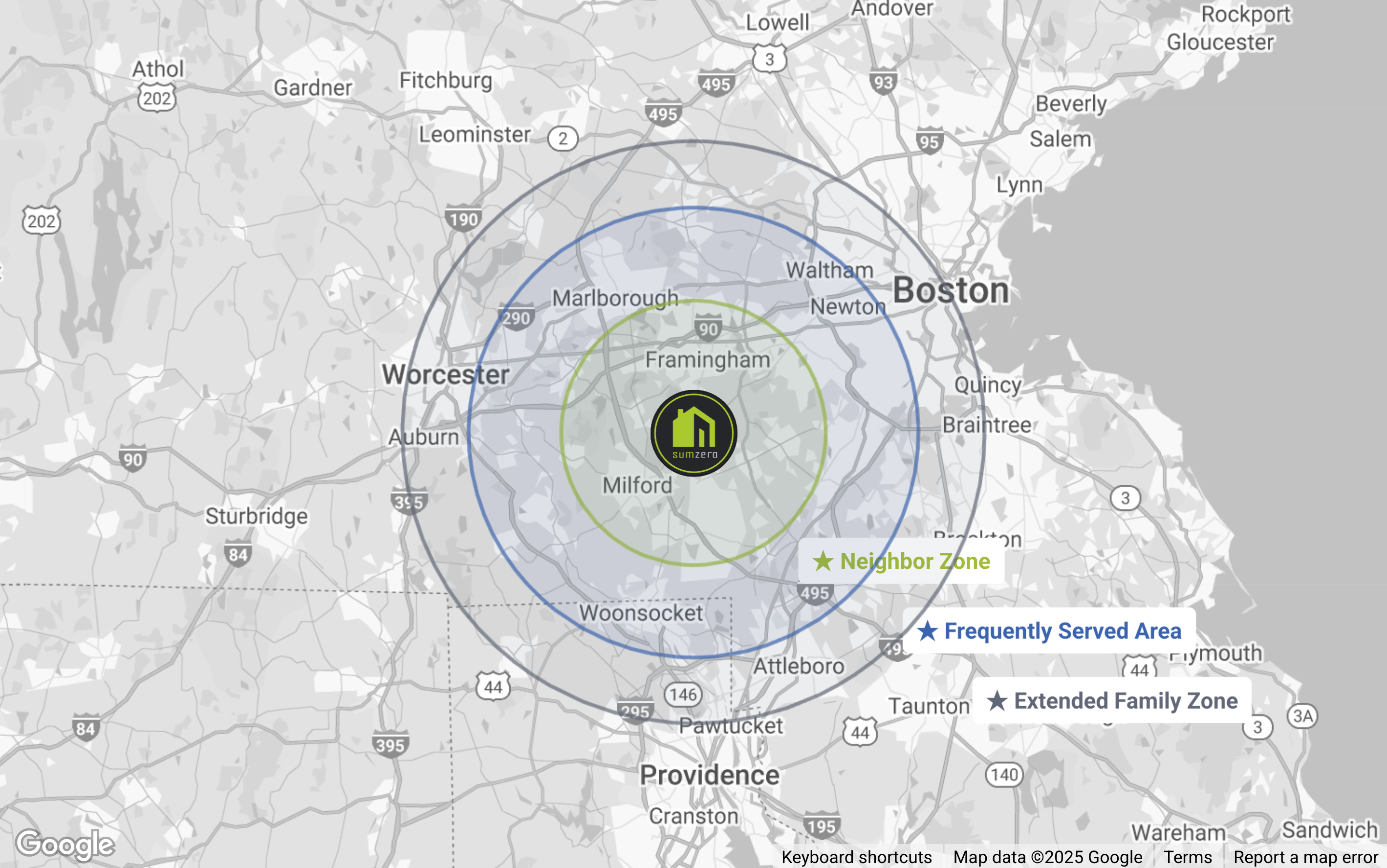AC Repair | Boston, MA
AC repair service is the professional maintenance and restoration of your cooling system to ensure efficient and reliable performance. If you’re searching for fast, affordable AC repair near me in Boston MA, our expert technicians are ready to deliver same-day air conditioner repair service to keep your home or business cool and comfortable.


Fast, Reliable AC Repair Service for Boston-MA Homeowners
Boston, MA is known for its rich history, charming neighborhoods, and—during the summer—its unpredictable and often intense heat waves. In a city where colonial homes blend with modern construction, each with its own HVAC setup, having a dependable AC repair service becomes less of a luxury and more of a necessity. Whether you live in a brownstone in Back Bay, a condo in the Seaport District, or a colonial-style home in Dorchester, having functional air conditioning is key to staying comfortable through Boston's hot, humid summers.
Summer in Boston often brings temperatures that soar into the 90s with added humidity that makes homes feel even more uncomfortable. When your AC breaks down, you need help quickly—ideally from a local, trusted technician who understands Boston’s unique climate and housing styles. That’s where SumZero Energy Systems comes in.
We make it our mission to restore comfort to your home with reliable AC repair service designed specifically with Boston-area homeowners in mind.
Why a Professional AC Repair Service Matters in Boston, MA
Understanding Boston's Local Climate Challenges
Boston’s humid continental climate means summers can be hot, sticky, and long.
This creates increased stress on your air conditioner. Systems in Boston often experience issues like cooling issues during heat waves or noisy operation when the system is overworked.
Older homes, common throughout Boston, often weren’t designed with central air in mind. That can lead to ductwork limitations or improper unit sizing that intensifies wear and tear over time.
When a repair is necessary, it’s critical to have services that take:
- Historical electrical infrastructure into account
- Variations in insulation and window quality
- State and city efficiency requirements
"In older neighborhoods like South End or Beacon Hill, central air conditioning isn't always built in, meaning many retrofit systems require careful attention when repaired."
Fast Repair Response to Maintain Indoor Comfort
At SumZero Energy Systems, we understand that time is of the essence. Loss of cool air can ruin a summer day, especially in Boston's multi-family housing where airflow and circulation are already limited. We offer same-day response and a systemized diagnostic approach to deliver a long-term solution, not just a quick patch.
Some of the most common signs that you might need our help include:
- Inconsistent temperatures across rooms
- Weak or no airflow
- Strange sounds like rattling or buzzing
- Spike in utility bills
AC Repair Near Me That You Can Trust in Boston-MA
Servicing All Neighborhoods Across Boston
Wherever you are in Boston—from Jamaica Plain to the North End—we provide dependable AC repair near me to help homeowners stay cool and safe. Our team of local technicians knows the area's residential codes and common building setups.
We tailor our diagnostics and repairs to each home. For example:
- Multi-family homes in East Boston might deal with noisy operation due to shared duct systems
- Victorian homes in Roxbury may have outdated electrical panels that affect AC cycling
- Modern builds in the Seaport could face tech integration issues
Our expertise across diverse home types helps us identify unique problems faster and recommend smarter fixes.
Local Rebates and Efficiency Standards
Massachusetts offers some of the most generous incentives in the country for energy efficiency. We help Boston homeowners align AC repairs with local programs like Mass Save®, which encourages high-performance HVAC systems and improvements that reduce cooling loads.
When we inspect your AC, we also help:
- Assess if your system meets Massachusetts minimum SEER (Seasonal Energy Efficiency Ratio) standards
- Determine if you're eligible for efficiency upgrades under current Mass Save guidelines
- Improve airflow and duct sealing to reduce operating costs
"Massachusetts leads the nation in energy efficiency, so repairing your AC to meet updated guidelines doesn't just bring comfort—it can bring savings too."
Emergency AC Repairs When You Need Them Most
When summers heat up fast, you don’t want to be left searching for "AC repair near me" and waiting days for service. We prioritize emergency calls—especially during peak heat advisories—which are common in July and August here in Boston.
Common emergency repair calls include:
- AC won’t turn on during a heatwave
- Leaking refrigerant
- Refrigerant levels too low to sustain cooling
- Unit freezes over due to cooling issues
Our trucks are fully stocked, and most repairs can be completed on the same day without waiting for parts.
Your Local Air Conditioner Repair Service Experts
Diagnosing Root Causes—Not Just Treating Symptoms
When your AC isn’t performing, we're here to identify exactly why. Our deep-dive diagnostic process examines:
- Thermostat calibration
- Air handler blockages
- Duct leakage and airflow
- Compressor and condenser health
- Electrical connections and fuses
In many Boston homes, aging ACs face multiple concurrent issues. Our process is designed to resolve not just today's scenario but prevent tomorrow's breakdown.
"With the average system age in Boston homes being over 10 years, proactive repair is often more economical than premature replacement."
Repairs for All Makes and Models
Whether you have a basic single-stage cooling system or a more complex variable-speed system, we have the training to fix it.
We service all major manufacturers, including:
- Lennox
- Carrier
- Goodman
- Trane
- Rheem
From wall-mounted ductless mini-splits often seen in renovated Boston lofts to traditional ducted systems in suburban-style homes, we’ve seen it all.
Our technicians handle:
- Compressor failures
- Capacitor replacements
- Low refrigerant levels
- Broken blower motors
Transparent Pricing and Easy-to-Understand Solutions
Boston homeowners appreciate straightforward solutions. We provide detailed estimates and explain exactly what needs fixing and why. No hidden fees, no jargon—just honest, skilled service.
Our repair process involves:
- Initial system inspection
- Accurate diagnostic
- Plain-language explanation of the issue
- Repair recommendation and cost
- Post-repair confirmation testing
AC Unit Repair Options Tailored to Boston Homes
Extend the Life of Your System
AC equipment is an investment—especially in a city where you rely on it for half the year. We help homeowners extend system longevity by addressing wear factors typical to Boston.
For example, high humidity levels in July and August can cause condensation issues and stress on coils, often leading to cooling issues. If your system age is a factor, we offer solutions that make sense financially.
Maintenance-based repairs may include:
- Cleaning evaporator/condenser coils
- Checking for mold growth in drainage
- Tuning thermostat performance
- Sealing leaky ducts
Upgrading Components vs. Full Replacement
Just because your system is acting up doesn’t mean it’s time for a full replacement. We specialize in isolated part repairs where feasible, which can be ideal in older systems that still have solid mechanical function.
If your repair includes:
- Compressor retains function but capacitor is blown
- Motor winding is intact but the fan blade is damaged
- Thermostat isn’t communicating properly
…we’ll fix what matters without pushing for unnecessary upgrades.
Seasonal Repairs that Prevent Mid-Summer Failures
Boston summers can strain an already overworked unit by mid-July. Spring and pre-summer repairs significantly decrease the risk of future catastrophic failures when you need cooling most.
Key checks we perform in spring repairs:
- Refrigerant line inspections
- Drain line clearing
- Coil cleaning
- Thermostat recalibration
These proactive steps not only fix ongoing issues but help your entire system perform more efficiently—resulting in lower temps and lower bills.
For an advanced guideline on energy performance and maintenance, refer to this Energy Star HVAC maintenance checklist.
Trust SumZero Energy Systems for Expert AC Repair in Boston, MA
There’s more to AC repair than just cold air. In a climate like Boston’s, you need consistent comfort, energy-efficiency, and cost-effective solutions tailored to the unique character of your home.
When you work with SumZero Energy Systems, you’re not just getting an air conditioner repair service—you’re partnering with a team that knows the Northshore’s triple-deckers, Allston’s student houses, and Brookline’s passive-energy townhomes.
Whether it’s tackling noisy operation, identifying whether your AC’s system age is a problem, or addressing recurring cooling issues, our precision and service-first mindset make us the trusted choice for Boston residents.
Let us help you reclaim the comfort of your home—fast, reliably, and locally.
What Local Homeowners Are Saying
See how SumZero has helped local homeowners stay comfortable year-round with energy-efficient heat pump solutions.
Not Sure Where to Start? We’ll Guide You
Let our experts design the right heating and cooling solution—customized for your comfort, your layout, and your energy goals. No pressure. Just clarity.
Request FREE ESTIMATE









